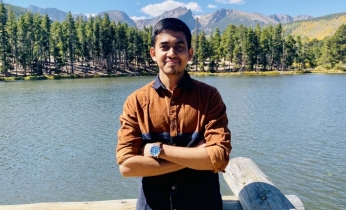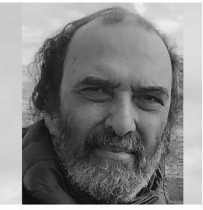
After a magnificent trip to three nations, Bangladesh's prime minister and the designer of the nation's progress, Sheikh Hasina, comes home today. She left on a 15-day journey to Japan, the United States, and the United Kingdom on April 25.
Her visit was important in many respects, as it sealed the plan of Bangladesh's continued trip to the roads of progress, particularly with the 12th National Parliamentary Election drawing near. Under her tenacious leadership, Bangladesh became a role model of development. We expect that the benefits of this visit to Bangladesh and its people will be felt for some time.
PM Hasina's visit, which took place just before Bangladesh's 12th National Election, was a game-changer for the country's socioeconomic and political condition. Under Sheikh Hasina's leadership, Bangladesh has maintained friendly and substantive ties with every superpower, including the US, China, UK, Russia, and India, despite the political unrest throughout the world. During her rule, Bangladesh's ties to its neighbors remained solid and positive. Prime Minister Hasina strengthened the relationship with America, Britain, Japan through this visit.
During Sheikh Hasina's visit, Japan and Bangladesh signed seven Memorandums of Understanding and one Agreement. Japan has been Bangladesh's main development partner since the country's founding. Japan has provided Bangladesh with more aid than the World Bank and ADB combined.
A joint statement from Bangladesh and Japan, in which the two countries once more reaffirmed their commitment to promoting their bilateral relations, marked the end of Bangladesh's official visit to Japan.
On the invitation of the president of the World Bank, Sheikh Hasina traveled from Japan to the US. Since Bangladesh joined the World Bank in 1972, there have been 50 years of collaboration between the two organizations. The World Bank decided to sanction a loan of US$2.25 billion to fund five projects in Bangladesh before Sheikh Hasina even met with the bank's president. A $4 billion loan will eventually be given to Bangladesh to help with its development budget.
In honor of their 50 years of collaboration, Sheikh Hasina and World Bank President David Malpass hosted a photo exhibition together.
The most significant event occurred when Sheikh Hasina presented a large framed photograph of the much-discussed Padma Bridge to the president of the World Bank. The World Bank withdrew from the project in 2012 under the pretext that they suspected corruption in the project, but the Royal Canadian Federal Court later revealed the allegation to be a hoax. Sheikh Hasina decided to construct the bridge all by herself, and it is now a reality. The image was displayed to show Bangladesh's will, independence, and commitment to development, as well as the Prime Minister of Bangladesh's fearless leadership.
Foreign leaders praised Bangladesh's tremendous development during PM Hasina's visit, despite the efforts of anti-government propagandists. IMF MD Kristalina Georgieva reiterated the IMF's confidence in Sheikh Hasina's capacity to guide Bangladesh's economy toward growth during their meeting. Following his chat with Sheikh Hasina, World Bank President David Malpass reaffirmed his organization's unwavering support for Bangladesh and its people as they face hitherto uncharted global issues.
On May 3, Masud bin Momen, the foreign minister of Bangladesh, and Victoria Nuland, the undersecretary of the US, held their ninth discussion about the Bangladesh-US partnership just before Sheikh Hasina left the country for London.
In the course of the talk, Momen reminded his counterpart of the steps taken by Bangladesh's Election Commission to ensure that all local or national elections would be held in a free and fair manner. Victoria Nuland applauded the efforts made by the Bangladeshi government and the Prime Minister's pledge to welcome all local and international observers throughout the election. The discussion also included Peter Hass, the US ambassador to Bangladesh.
Sheikh Hasina visited London, United Kingdom, for the last leg of her recent journey to three nations, where she went to see King Charles III and Queen Consort Camilla Parker be crowned.
She met several heads of state there. They all praised Bangladesh's continued prosperity despite the COVID-19 outbreak and challenges the world economy was experiencing as a result of the Russia-Ukraine conflict. Sheikh Hasina is an inspiration to us, said UK Prime Minister Rishi Sunak about her. I've been following you for a long time. You are an effective leader in the economy. You serve as a wonderful role model for my two girls. He called the prime minister of Bangladesh a "role model" for growth. The Prime Minister of Sierra Leone and his spouse have also praised Sheikh Hasina's leadership by declaring, "We're following you (Sheikh Hasina)".
Bangladesh has advanced significantly in a variety of development indices under Sheikh Hasina's leadership.
Sheikh Hasina and her administration have won praise for their sympathetic response to the Rohingya issue in 2017. Sheikh Hasina has also successfully spearheaded a battle against extremism and terrorism. One of Sheikh Hasina's administration's greatest achievements is the prosecution and sentencing of war criminals and Bangabandhu Sheikh Mujibur Rahman's killers. In addition, the Chittagong Hill Tract Peace Treaty, which was put into effect during her first term as prime minister, will live on in history.
One of South Asia's most significant political figures is largely considered as Sheikh Hasina.
In 2015, Forbes magazine listed her as the 59th most influential woman in the world, and she was ranked 42nd for two years in a row in 2018 and 2022. She was given the UN's Champions of the Earth award in 2015 in addition to being recognized one of the top 100 thinkers in the world in 2019. She has received more than sixty national and international awards for her expertise in politics and sharp mind, as well as numerous doctoral grants from top colleges throughout the globe.
Sheikh Hasina is the longest-serving female leader in history and the longest-serving non-hereditary head of state. In Bangladesh's history, she has held the position of prime minister the longest.
Sheikh Hasina has become the world's longest-serving prominent female leader and an icon of the resurgence of women, according to a Wiki Leaks survey. Sheikh Hasina's name has been added to the list of the most notable female leaders in the world with the longest tenures, surpassing the accomplishments of other notable female leaders like Chandrika Kumaratunga of Sri Lanka, Margaret Thatcher of Britain, and Indira Gandhi of India.
Sheikh Hasina and Bangladesh have experienced enormous significance in the month of "May." After nearly six years in exile following the murder of Bangabandhu Sheikh Mujibur Rahman and the majority of his family, Sheikh Hasina returned to Bangladesh from India on May 17, 1981. As she led the democratic struggle in the face of challenges from autocratic rule and made a vital contribution to restoring democracy, her return to Bangladesh dramatically altered the country's political landscape. In 1996, her government first came into power after a democratic uprising.
Sheikh Hasina defied all odds and conspiracies to return to her native Bangladesh on May 7, 2007, while the country was under a state of emergency imposed by the interim administration at the time. She was headed to London after undergoing medical treatment in the US. The caretaker administration participated in a plot to keep Sheikh Hasina out of Bangladesh. However, the president of the Awami League declared that he will enter the nation again despite the then-government's unlawful travel ban. Around the world, protests against unlawful bans erupted.
Sheikh Hasina's tenacity, bravery, and the opposition's support for democracy put pressure on the previous caretaker administration to lift the restriction on her return. That day, upon her return, Bangladesh and its people were truly given a head start in terms of growth.
Sheikh Hasina is now returning home on May 9, 2023 (today), having removed a great deal of uncertainty from Bangladesh's political and economic landscape. Those who were vocal in their criticism of her government in front of the world have since ceased to do so after she was honored greatly by international leaders for her visionary leadership in advancing Bangladesh's growth.
Sheikh Hasina's diplomatic acumen has greatly contributed to the prosperity of the country while she has upheld its honor, dignity, and integrity. Her ability to conduct free and fair elections in the nation where opposition parties and anti-sovereign elements have been persistently knocking on the doors of foreign governments has also been endorsed by world leaders. Consequently, it has been another happy and successful "May" narrative for her, the nation, and her fellow citizens.
Mehjabin Bhanu is a Bangladeshi writer, columnist, commentator on international affairs specially South Asian affairs. She can be reached at mehjabinbhanu1579888@gmail.com





































